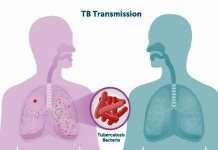
The World Health Organisation (WHO) has emphasised the pivotal role of collaborative strategies in fostering an inclusive and resilient healthcare system in Nigeria.
WHO Representative in Nigeria, Dr Walter Kazadi Mulombo, stated this, yesterday, during the 64th National Council on Health (NCH) in Ado-Ekiti, Ekiti State.
Mulombo said NCH’s unique platform is a space where federal and state leaders, supported by partners, collaboratively evaluate, co-create, and make far-reaching decisions on health issues.
“The sub-themes intensify the discussions and fine-tuning of critical health issues that demand collective attention,” he said.
Meanbwhile, the Oyo State Government has started a sensitisation campaign against five priority diseases namely: Lassa Fever, COVID-19, Diphtheria, Cholera and Anthrax.
Commissioner for Health, Dr Oluwaserimi Ajetunmobi, flagged off the community sensitisation programme, which is to take place in various communities across the state in Okeho, headquarters of Kajola Local Council, this weekend.
The commissioner said that the programme would take place in 10 councils of Oke-Ogun and in markets in Ibadan, the state capital.
Ajetunmobi, who stressed that the five priority diseases were preventable once people live in a clean environment, said a clean source of water, healthy eating habits, adherence to a balanced diet and a good disposal system were key to preventing some of the diseases.
The WHO representative, who also highlighted the pressing challenges from high out-of-pocket expenditures to the complex landscape of communicable and non-communicable diseases, commended Nigeria’s prioritisation of primary healthcare and health financing as key drivers toward Universal Health Coverage (UHC) and the Sustainable Development Goals (SDGs).
He, however, called for a transformative shift from conceptualisation to actionable results, aligning with international commitments.
Mulombo, while reaffirming WHO’s commitment, aligned the organisation’s efforts with the ‘Renewed Hope Agenda’ of the President Bola Tinubu-led administration as reflecting in the strategic pillars of the health sector renewal investment programme.
He also suggested exploring innovative approaches for continuous engagement between the Federal Ministry of Health and various state governments.
“This aims to enhance performance tracking and the effective implementation of council resolutions,” he said.
NAN










